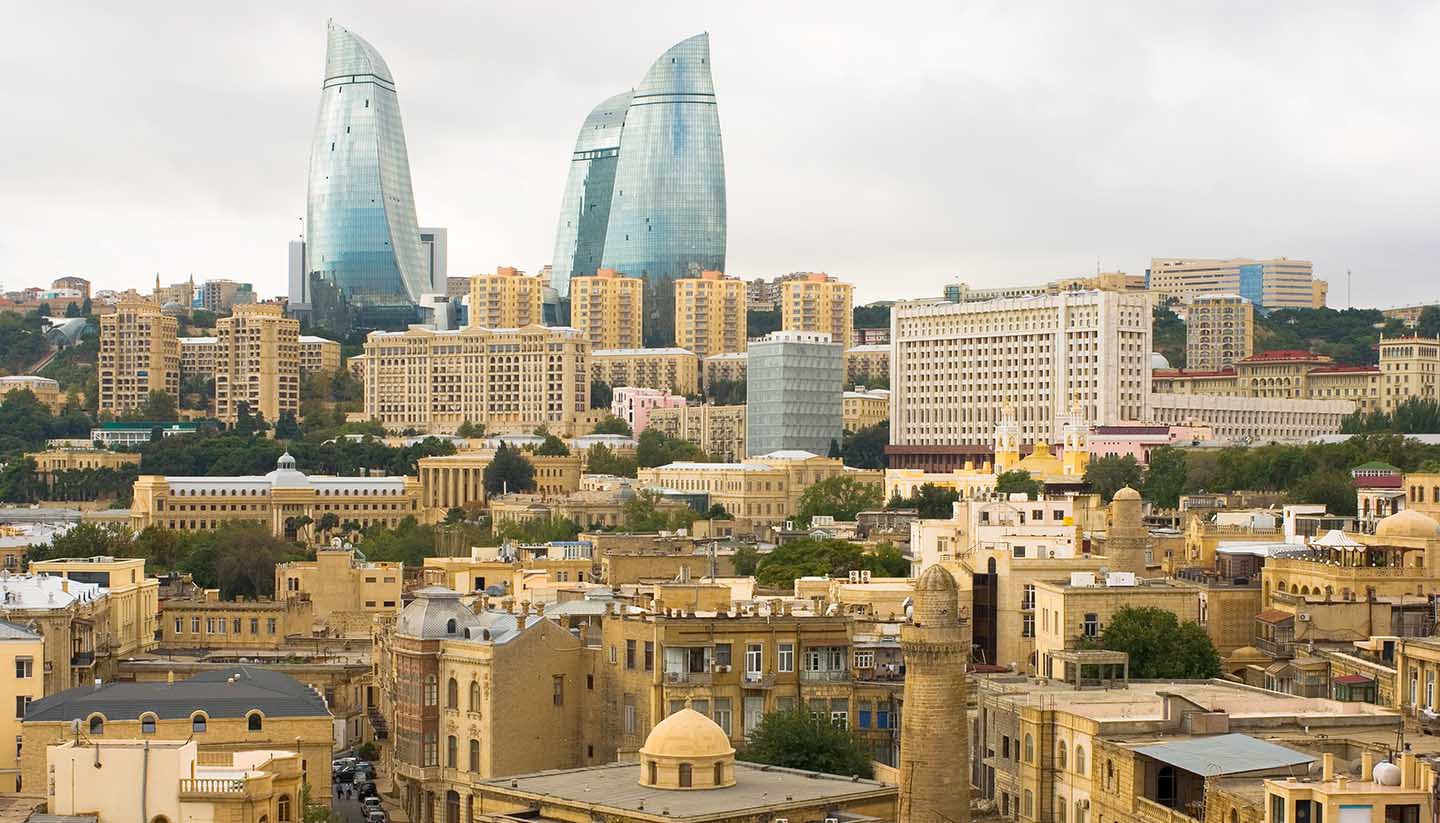Azerbaijan History, Language and Culture
History of Azerbaijan
Over the centuries, Azerbaijan has enjoyed only brief periods of independent statehood, in between longer periods spent incorporated into major regional empires.
Amongst the first to arrive were the Arabs, who marched into The Caucasus in the 7th century and established Islam as the predominant religion. They were followed by the Seljuk Turks who, by the 11th century, had leveraged their growing influence on the region and made Turkish the main language in the territory. Thereafter, Azerbaijan was influenced by both the Ottoman Turks, lying on the border of their empire, and the Iranians, from whom they acquired an adherence to the Shia branch of Islam.
In 1812, the Russians, in the course of their march southwards, took over the northern part of Azerbaijan; the southern part remained a province of Iran. A series of wars ensued between the two powers, from which Russia emerged victorious. But then came WWI, which, in 1917, brought about the collapse of the Russian Empire and, consequently, Azerbaijan's freedom.
The years that followed were prosperous for the young nation. A Caspian Sea oil boom brought great wealth to the country and transformed its capital, Baku, into an industrial centre. But this golden era was short lived. In 1920 the Russians returned, marching into oil-rich Azerbaijan to establish a puppet state known as the Azerbaijan Soviet Socialist Republic.
The most prominent politician to emerge during the Soviet period was Heydar Aliyev, successively head of the Azerbaijan KGB, leader of the Republic itself, and then a full member of the Soviet Politburo. He would play a decisive role in post-Soviet Azerbaijan, the seeds of which were sewn when the Soviet Union crumbled towards the end of the 1980s.
During this time the issue of Nagorno-Karabakh – an autonomous enclave inside Azeri territory with an overwhelming Armenian majority – proved critical to Azerbaijan's political development. Serious internal problems and a failure to make any progress on Karabakh led to a military coup and paved the way for the return of Heydar Aliyev. He succeeded in tackling the two most pressing issues: stabilising the political situation in the country and negotiating a truce in the Nagorno-Karabakh War.
The 1994 settlement in Nagorno-Karabakh did not favour the Azeris, although they continue to make vigorous diplomatic efforts to address the status of the territory. Aliyev was twice re-elected by huge majorities. Elections in November 2000 gave the party two-thirds of the parliamentary seats.
Ilham Aliyev inherited his father's office in 2003, through an election the international community widely believed to be unfair. While Azerbaijan remains a stable country, it is still mired in corruption, and continues to be a dictatorship in all but name with widespread human rights abuses.
Did you know?
• Hitler said that if he couldn't take over the Baku oilfields, the war would be lost. The German army was on its way there when they were defeated by the Russians in the battle of Stalingrad in 1943.
• The name of Azerbaijan’s 'exclave' in Armenian territory, Nakhchivan, means Noah's Colony. Azeris believe survivors of the Great Flood settled here.
• Azerbaijan was the first Muslim country in the world to offer universal suffrage, giving women the vote in 1918.
Azerbaijan Culture
Religion in Azerbaijan
Mostly Shia Muslim although there are Russian Orthodox and Jewish communities.
Social Conventions in Azerbaijan
Foreign women should dress modestly, especially in the rural areas, and cultivate a certain coolness of manner. Both men and women should avoid wearing shorts as this will attract unwelcome attention. Although mostly Muslim in population, Azerbaijan is a largely secular society that views religion as a private matter. Handshaking is the normal form of greeting. Business cards are invariably exchanged at any kind of official meeting, and not infrequently on first meeting socially as well. It's always a good idea to give gifts to people you meet, business contacts. Flowers, post-cards, picture books and alcohol make excellent presents.
Language in Azerbaijan
Azeri. Russian is widely spoken; English may be spoken in Baku and other main centres.


